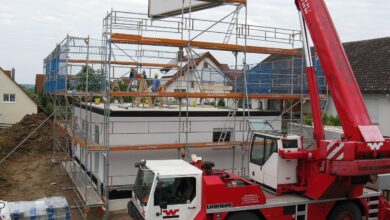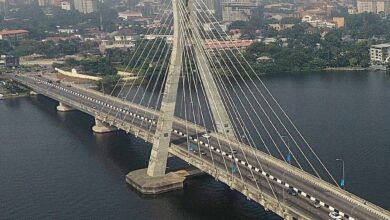LASG reports that 80% of buildings in Lekki lack approval.

According to Dr. Oluyinka Olumide, Lagos State Commissioner for Physical Planning and Urban Development, 80% of the constructions in Ibeju Lekki are unapproved.
In a recent interview, he revealed this to reporters.
“Ibeju Lekki and Epe axis is where the team and I were just last Thursday and Friday, and you would agree with me that anybody passing through that corridor would see a lot of estates marked,” he stated. After visiting, I can confirm that more than 80% of them lack approval based on our observations.
“The first step in the approval process is to obtain planning information regarding the zones assigned to such places. In this instance, what we have is agricultural land, which people are now purchasing from their family. Those lands would naturally be sold, as those families have no idea what use such land would find.
“Getting a fencing permit is the next step. In the event that you were unaware of the area’s zoning before to obtaining the fencing permission, you would have been able to determine its current designation. The arrangement then allows for a significant land expenditure to come after that.
Olumide stated that if a layout permit is not zoned for the use for which it was intended or for the purpose for which it is being requested, it cannot be granted.
Despite the fact that all of these layers are visible, people yet choose to begin promoting. Some have even gone so far as to provide their desired selling sizes on display. Consider a diaspora individual who want to contribute money but is unsure how to do it. Eventually, no clearance is received. We would not award an individual permit since that location is not zoned for that use, the commissioner said, even if they gave them the assignment and the survey.
Similarly, Jide Odusolu, the CEO of Octo5 Holdings, claimed that fast expansion on the Lekki Peninsula after 2010 caused the masterplan to become warped, with newer estates circumventing outdated laws.
“The Lekki peninsula had a master plan,” he stated. It was modified under Babatunde Fashola and was first introduced when Bola Tinubu was the governor. There are authorized layout designs for almost every large estate along the Lekki route, particularly those built between 2000 and 2008. The state administration made it mandatory and strictly enforced.
However, beginning in 2010, the plans were warped by the rapid expansion, and many of the smaller ideas that arose were specifically designed to escape the heavy infrastructure loads that came with the developments of the legacy era.
“I’m sure studies with developers like Octo5, (Ocean Bay), UPDC (Pinnock Beach), Trojan Estate, Aircom (Northern Foreshore), Cityscape (Buenavista), Howard Roarks (Lake View), and Octo5 (Tortoise Bay) will show how they all paid exorbitant taxes while spending enormous sums of money on infrastructure without receiving any assistance from the government.”
Odusolu claims that in order to earn money internally, the government weaponized planning and titling, which disincentivizes compliance and results in uncontrolled growth.
Meanwhile, most of the estates had layout designs that were not coordinated to establish a planned city, according to Femi Oyedele, Managing Director of Fame at Oyster & Co. Nigeria.
He pointed out that the historic villages that the government eliminated from the plan were the towns that were not planned.
“In order to improve Lekki, the authorized estates along the east and west arterial roads—which descend to Akodo on the west side and Awoyaya on the east—must be removed to create room for the proposed highways.
“Lekki has to undergo the same kind of rehabilitation that Nasir El’Rufai did for Abuja. Over 3 million people live on Victoria Island and the Lekki Peninsula. Less than two million people live in Glasgow, which has twice as many roads as the Lekki Peninsula, the speaker stated.




